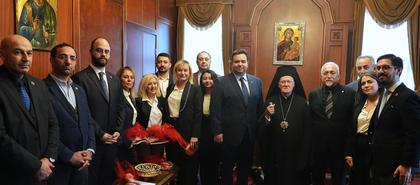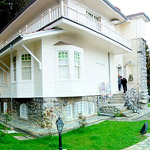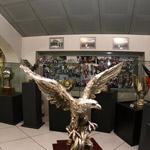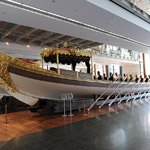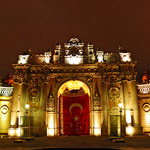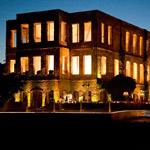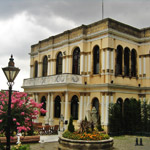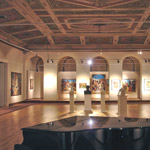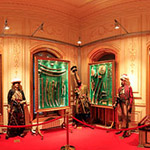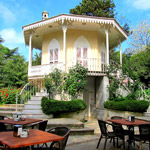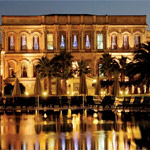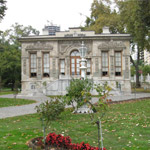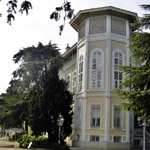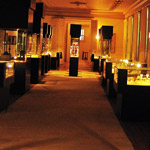Newcomers Guide
Besiktas is located in the European side of the city, and geographically composed of coastal and interior settlements. Despite its small surface area and population, it is ideally located at the junction of arterial roads of Istanbul, and has a convenient location to world-class amenities. It has the access roads to the Bridges of Bosphorus and Fatih Sultan Mehmet interconnecting the European and Anatolian sides of Istanbul and even two continents. While the current population is approximately 190.000, it reaches approximately 2 million people in a day.
It is one of the oldest districts of Istanbul. As the majority of rulers resided in Besiktas in Ottoman term, the shores of the district feature reminiscent of the past with palaces, mansions, museums and manors standing out as glorious examples of Ottoman architecture. Having three of four Ottoman imperial palaces, Besiktas features an outstanding touristy place hosting a huge heritage of Ottoman architecture and culture. The most glorious palaces of Ottoman period are Ciragan, Dolmabahce, Yildiz and Feriye Palaces. Mansions and manors built in coastal settlements of Besiktas in 18.century are also spectacular. Among these include Ihlamur Pavilion and Esma Sultan Mansion, built by the Balyan Family in 19.century, Malta, Cadir and Chalet Pavilions in Yildiz Grove.
As for historic religious buildings, mosques, synagogues and churches welcoming the worshipers of three religions coexist in peace across the district. In Ortakoy, ETZ Ahayim Synagogue, Surp Krikor Lusarovic Church and Ortakoy Mosque located next to each other constitute a triangle of three religions which features a striking evidence of peaceful dynamics of the region. Other samples of religious architectural heritage across Besiktas can be listed as Sakızagaci Surp Asdvazazin Church, Ayios Mihael Church, Sinan Pasha Mosque, a characteristic artifact of Ottoman architecture in 16. Century, Tomb of Barbarossa Hayreddin Pasha, built in 16.century by the Great Architect Sinan, a famous Ottoman architect, Tomb of Yahya Efendi, a 16th-century Islamic complex, Ertugrul Tekke Mosque, a remarkable sample of Art Nouveau style in Istanbul, designed by the architect Raimondo D'Aronco in 19.century, are worth checking out.
The district was a significant place in Republican period as well. It hosted Mustafa Kemal Ataturk, the founder of Turkish Republic, in “Besiktas Saray-i Humayun” (Dolmabahce Palace) which was equivalent to the Republican Residence in Ankara, the capital of Turkish Republic. Mustafa Kemal spent his last days and passed away in Dolmabahce Palace, which literally makes the district one of the symbols of Ataturk. As well as hosting several witnesses of cultural heritage such as Asiyan Museum, Yildiz Palace Museum, Maritime Museum, the Museum of Painting and Sculpture and the City Museum, Besiktas also abounds in natural beauties which offer the chance to escape from the hustle and bustle of the city. It has huge groves protecting the vegetation without spoiling the natural beauty such as Yildiz, Naile Sultan, Naciye Sultan, Ayse Sultan, Ipar, Kortel, Vakif, Arnavutkoy Robert College, French Orphanage and Bogazici University Groves.
Besiktas has vibrant residential neighborhoods, namely Carsi, Levent, Ortakoy, Bebek, Arnavutkoy and Etiler each of which has their own characteristics. The district is one of the most sophisticated urban settlements in Turkey, even in the world, in terms of the education level and cultural awareness among its residents. University graduates comprise 34% of the population which is the highest rate of Turkey according to a joint survey made by REIDIN-SED in 2013. Besiktas is also the most leading education center in Istanbul. There are several high-ranking primary and high schools, and nine universities including highly respected ones in Turkey such as Bosphorus, Galatasaray, Yildiz Technical University and Mimar Sinan University. Bosphorus University is the Turkish university among first 200 universities worldwide according to the Times Higher Education World University Rankings of 2013-2014. In addition, the district is the major castle of social democracy and love of freedom in Turkey with its secular and libertarian population.
In addition, Besiktas stands out with its cultural dynamism and exceptionally colorful sociocultural life thanks to availability of several centers of culture, theatre and cinema where theatre performances and film screenings as well as panels and various courses are available. Apart from municipal cultural centers such as Levent, Akatlar, Ortakoy, Fulya and Mustafa Kemal, the district hosts the BKM (Besiktas Cultural Center), one of the most famous cultural centers of Turkey. In addition, various art festivals, carnivals, exhibitions, sports and cultural events such as festivals of photography, music, book, cinema, theatre and painting, tournaments of skating and volleyball are organized by Besiktas Municipality either in street or in culture centers throughout the year.
The district has also an inspiring business climate and a fast-paced commercial life. Several small shopping centers, corporate headquarters, bank branches, agencies operating in the capital market, shopping malls corresponding to European standards (such as Akmerkez and Kanyon), plazas and international hotel companies, as well as pharmaceutical factories like Nobel and Pfizer.
EDUCATION IN TURKEY
Compulsory education including primary, secondary and high school education lasts 12 years (between the ages of 6 and 18) in Turkey. It is free of charge in public schools, but there are also private schools and colleges. High school graduates are assigned to university according to their performance in university exams called YGS and LYS. Higher education institutions in Turkey include universities, faculties, institutes, higher education schools, vocational higher education schools, conservatories, and application and research centers. Universities provide either two or four years of education for undergraduate studies, but graduate programs last a minimum of two years. Some universities also ask for an additional year of English preparatory study to be completed before the start of studies, unless an exemption examination is passed. Public universities typically charge very low fees while private foundation universities are highly expensive with fees that can reach $30,000 per annum.
DRIVING LAWS IN TURKEY
Traffic in Turkey drives on the right hand side of the road. Whether you plan to rent a car or drive your own car in Turkey, you should bring driving license, so that you don't need to apply for an international driving permit. The car rental agency in Turkey will want to see it and so will the police in case you are stopped. If you are planning to stay long-term in Turkey, then your foreign driving license is usually only valid for up to 90 days. After this time, you must apply for an international driving permit. The minimum age to drive a motorcycle or car in Turkey is 18.
Changing of Foreign Driving Licenses into Driving Licenses of Turkey:
Foreign residents wishing to also have a Turkish license have to apply to the traffic section of the provincial security directorates. The applicants are not subjected to test, however there are certain documents required: To acquire a driving license in Turkey applicants must turn 18 for a car or minibus, 17 for a motorcycle and 22 for a bus or truck. Necessary documents to also acquire a Turkish driving license (besides their own license) are listed below:
- The original and the copy of the identity card (residence permit for foreigners)
- File taken from Drivers Association
- The translation of the driving license certified by the notary or the embassy
- 2 passport photos
- The original of the foreign driving license (This document shall be returned upon completing process)
- Health report (From state hospitals or private health organizations)
- Police record
- Blood group card
- Fee receipt from the Ministry of Finance (To be paid according to the driving license class)
- Driving license fee
Foreign residents can receive a new driving license that will enable them to drive in Turkey. In this case, it requires registering an authorized Driving Course which should be completed passing the examinations. Then, the necessary documents should be prepared to present to the officers at the Transport Registrar (Trafik Tescil Müdürlüğü) which is at the local police headquarters. Necessary documents to apply for a new driving license are listed below:
- The original and the copy of the identity card
- The original of the certificate
- The copies of the documents acquired from the driving course
- The original of the diploma
- File from Drivers Association (The documents in the file will be filled in accordance with the information on the identity card)
- 2 passport photos
- Blood group card
- Fee receipt from the Ministry of Finance (According to the driving license class)
TURKISH CULTURE AND SOCIAL SKILLS
1. Etiquette in Turkey
a. Meeting and Greeting Etiquette:
- When you meet someone, shake hands firmly. When departing, it is not always customary to shake hands although it is practiced occasionally.
- Close friends and relatives greet each other with two kisses on the cheek. Elders are always respected by kissing their right hand then placing the forehead onto the hand.
- When entering a room, if you are not automatically met by someone, you are expected to greet the most elderly or most senior first. At social occasions, you should greet the person closest to you, then work your way around the room or table anti-clockwise.
b. Dining Etiquette:
- Most business entertaining will take place in restaurants.
- The protocol of Turkish hospitality tends to be that the host always pays for the meal. The concept of sharing a bill is unusual. You may try and offer to pay, which may be seen as polite, but you would never be allowed to do so. The best policy is to graciously thank the host then a few days later invite them to do dinner at a restaurant of your choice.
- Turks smoke during meals and will often take breaks between courses to have a cigarette and a few drinks before moving onto the next.
- Tea or Turkish coffee is served at the end of a meal sometimes with pastries. Turkish coffee is a national drink and recommendable at least to have a try. It is cooked either sweet or with a little or no sugar. Turkish coffee is sipped and allowed to melt into the taste buds, so do not gulp it down as you would with instant coffee. Never drink it to the bottom of the cup as it will be full of ground coffee tasting awful.
c. Gift Giving Etiquette:
- Gift giving has no real place in business relationships or etiquette. Relationship building and the like will usually take the form of dining or sightseeing trips rather than lavish gifts.
- However, if a gift is to be given, it is always a good idea to bring gifts from your own country such as food stuffs or craft items.
- Be aware that Turkey is a Muslim country. Even if not all Muslims abstain from alcohol, do not give anyone alcohol as a gift before being completely sure that they drink.
- You may be expected to give gifts only if you are invited to a Turk's home for dinner. The most usual gifts to give the host are pastries (especially 'baklava'), and decorative items for the home such as ornaments or vases.
2. Business Etiquette and Protocol
a. Relationships & Communication:
- Turks prefer to do business with those they know and respect, therefore spend time establishing a personal relationship.
- Relationships are fostered in the office, over extended lunches, dinners, and social outings.
- Courtesy is crucial in all business dealings.
- Turks do not require as much personal space as many other cultures and will stand close to you while conversing.
- Do not back away, as this can be construed as unfriendly.
- Discussions may start slowly, with many questions that may seem irrelevant to the purpose of your visit. It is extremely rude to insist that your colleagues get to the point.
- Ask about his/her family without prying. Questions about children will be welcomed.
- Turks are proud of their country and will enjoy answering questions on their culture and history.
- Most Turkish men love football (soccer) and usually support one of three teams: Galatasaray, Besiktas or Fenerbahce. Asking after their team's recent fortunes will always produce positive responses.
- Once a relationship has been established, communication is direct. It is vital that you maintain eye contact while speaking since Turks take this as a sign of sincerity.
b. Business Meeting Etiquette:
- Appointments are necessary and should be made 1 to 2 weeks in advance, preferably by telephone.
- Most Turks take vacation during July or August, so it is best not to try to schedule appointments at that time.
- It is also not a good idea to schedule meetings during Ramazan (Ramadan).
- Punctuality is expected although you should be prepared to be kept waiting.
- First appointments are more social than business-oriented since Turks prefer to do business with people they know.
- Small talk helps establish a rapport. Do not immediately begin discussing business.
c. Business Negotiation Etiquette:
- Always come to Turkey knowing two things. Your success is defined by your ability to build effective personal relationships combined with a clearly outlined and well-presented proposal.
- Business is personal. Although this is changing with the influx of big multi-nationals and a more corporate culture in some of the larger companies, many businesses are still family owned and run.
- Turks will want to do business with those they like, trust, feel comfortable with and with those that can provide a long term relationship. If they feel you are hiding something or there is an element of suspicion about your motives you may not get very far.
- Building a relationship with your Turkish counterpart(s) is therefore critical. The first meeting at least should be solely focused on getting to know each other. Once a relationship has been established you can safely move on to business matters.
- As well as looking to the person, Turks are also astute business people. Ensure your proposal clearly demonstrates the mutual benefit and profitability of any agreement or partnership.
- Turks are primarily oral and visual communicators so in addition to written statistics, projections and the like try to present information vocally or with maps, graphs and charts.
- Decision making can be slow. It is most likely that you will meet and negotiate with less senior members of a family first. Once you are seen as trustworthy and your proposal financially viable you will then move on to meet more senior members. A decision is ultimately made by the head of the family/company.
- When negotiating, the Turks will start at extremes in order to gage your response. Prior to negotiations know your target figure and work slowly towards it through meaningful concessions. When conceding ensure you present this as a favor and a decision made out of respect and liking for your counterpart(s). Try and concede only once you have gained agreement on a reciprocal concession on a separate or related issue.
- Do not use deadlines or pressure tactics as the Turks will use this to their advantage and reverse the tactic by threatening to cancel agreements or end negotiations. Be patient.
- It may not always be necessary to focus on financial benefits when negotiating. It is just as useful to point to areas such as power, influence, honour, respect and other non-monetary incentives.
d. Business Dress Etiquette:
- Business dress is conservative. You will be expected to wear a suit and tie. Similarly women should wear smart professional outfits.
- In summer, and especially in the cities of Istanbul, Izmir and Ankara, the weather is very hot and humid. It is acceptable to just wear a shirt with trousers and in most cases to not wear a tie.
- Outside the big cities and especially in the East of Turkey, both women and men should wear more conservative clothing. Women are advised to refrain from exposing their legs and to ensure that clothes are not tight-fitting. Men should not wear shorts.
e. Naming Conventions:
- When addressing a Turk, the most common method is to call a man by his first name followed by 'Bey' (pronounced bay). So, Ertan Gonca would be Ertan Bey. Similarly a woman's first name would be followed by 'Hanim' (pronounced ha-num).
- Where professional titles exist such as Doctor or Professor, always use them either on their own of before the first name.
- Curiously this is also the case with many other professions such as lawyers 'Avukat' or engineers 'Muhendis'. Within Turkish companies and organizations, senior ranking staff will be addressed accordingly. A common example is Mr. Manager, 'Mudur Bey'.
- A common phrase you will hear Turks using is 'efendim' (literally 'my master'). You may hear this from a waiter, a secretary, taxi driver, doorman, shop staff and many others. It is simply a polite way of addressing people you are not familiar with.
f. Business Card Etiquette:
- Business cards are exchanged without formal ritual.
- Have one side of your business card translated into Turkish. Although not a business necessity, it will impress your business colleagues.
- Quite often Turks do not give their business card unless they are certain that they wish to establish a business relationship.

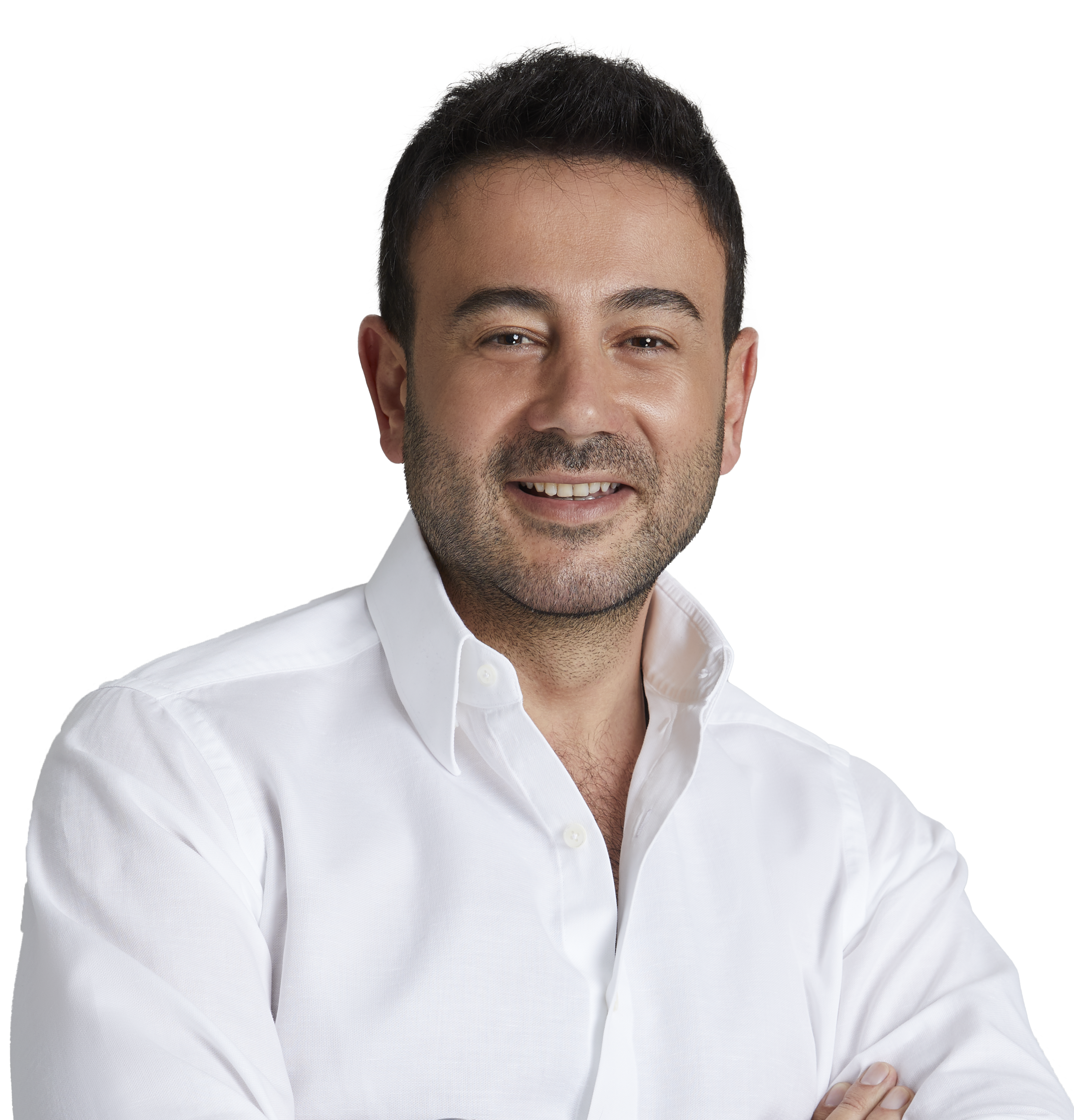

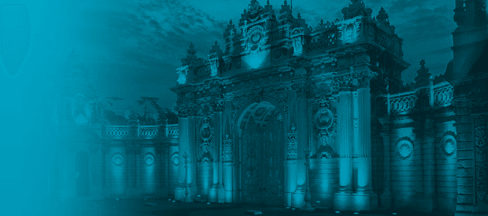











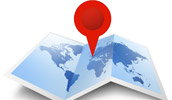
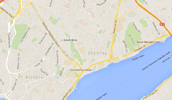

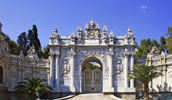
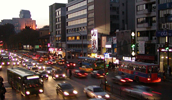
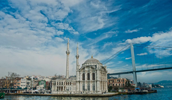


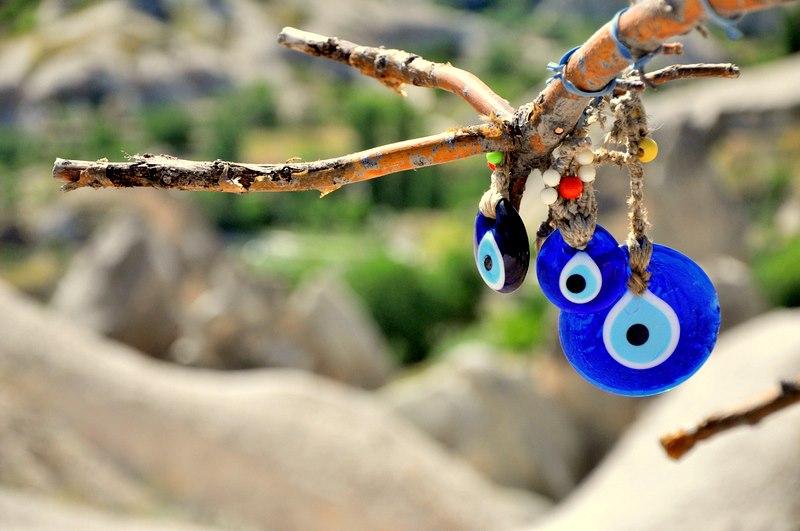
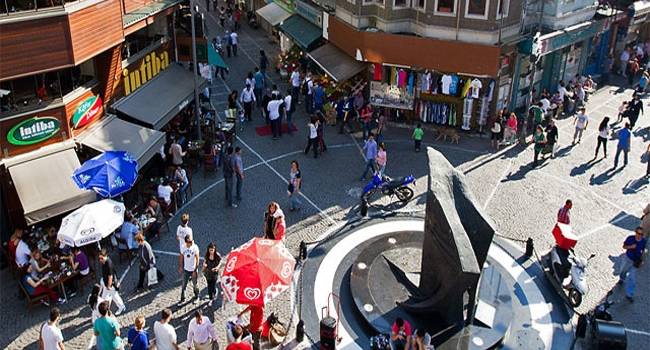
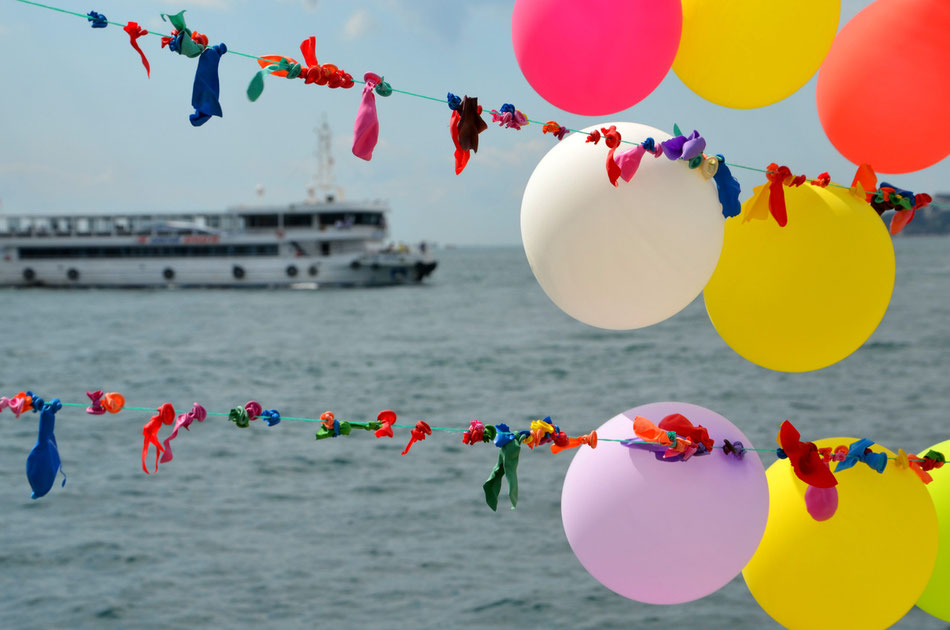
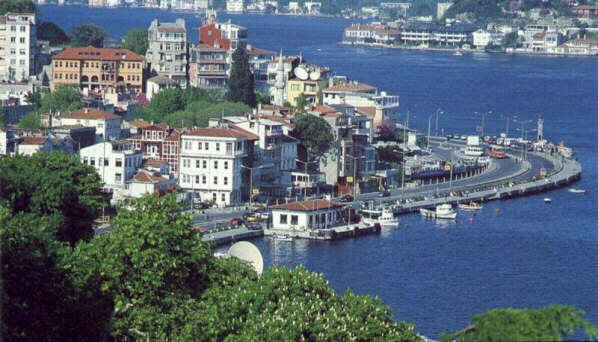

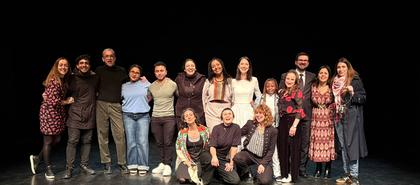
 (1)_420x185.jpg)
